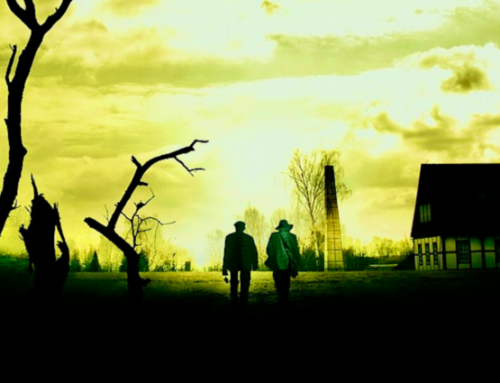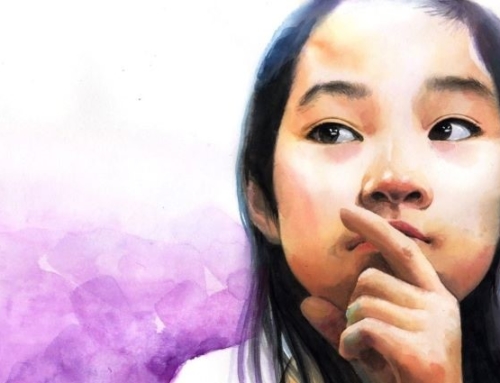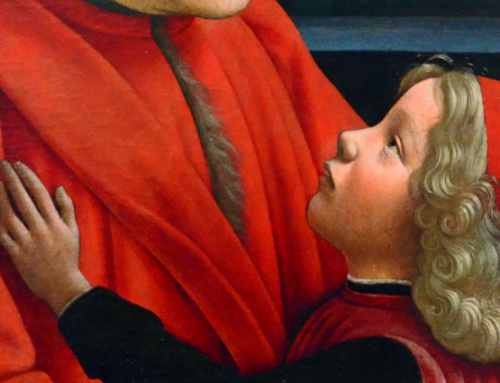On November 11, more than on any other day, we ought to remind ourselves that while some wars need to be fought, most don’t. We need to remember the horrors of World War I, and we need to remember the price young men and women pay whenever we allow ourselves to be duped into another needless conflict.
 The 11th hour of the 11th day of this November marks the centennial of the end of World War I, the end of European ascendancy on the world stage, and the rise of American global power. For some the end of World War I also demarcates the end of a more innocent, more civilized world order where words like honor, decency, and civility all had meaning. For others it demarcates the end of colonial expansion, the war serving as a catalyst to national liberations around the world. And for yet others, it marks the beginning of female liberation, moral relativity, strident nationalism, and the rise of totalitarianism.
The 11th hour of the 11th day of this November marks the centennial of the end of World War I, the end of European ascendancy on the world stage, and the rise of American global power. For some the end of World War I also demarcates the end of a more innocent, more civilized world order where words like honor, decency, and civility all had meaning. For others it demarcates the end of colonial expansion, the war serving as a catalyst to national liberations around the world. And for yet others, it marks the beginning of female liberation, moral relativity, strident nationalism, and the rise of totalitarianism.
For centuries to come, historians and others will debate the various benefits and tragedies precipitated by the Great War to End All Wars, but one thing is indisputable: At the beginning of that war, seemingly unintentionally but without any sense of regret, remorse or equivocation, Europe grabbed itself by the throat and committed the greatest act of collective suicide in modern history. The idiocy and hubris of the recent Iraq War pales in comparison when one considers the self-deception, grandiose dreams, and sheer arrogance that was World War I. Not since the Peloponnesian Wars had a civilization so thoughtlessly and recklessly demanded its own destruction.
On the eve of World War I, Europe was incredibly dynamic, vibrant and creative; it was the center of the world culturally, economically, and militarily. But then it descended into an inexplicable madness. Yet, even from such madness and destruction good inexorably comes. Our modern world was born with those millions of needless deaths. The mind was freed, for good and ill, from the foolish conceits of the past. No more blind trust in the rationality of man or the reasonableness of nations. No longer to be fooled by the old myth that democracies are by nature peaceful or that nations always act in their obvious best self-interests. A new world was born. Part of that new world looked frightfully like Yeats’ “rough beast slouching toward Bethlehem to be born” as totalitarianism took hold in Germany, Italy, Russia, and elsewhere, but World War I also triggered a new world remarkably refreshing in poetry, art, music, architecture, and life. Politically too: A great wave toward equal justice and fairer treatment for women comes on the heels of World War I, as does the first serious glimmerings of demands for self-determination throughout the world and even self-determination for individuals no longer strait-jacketed by societal mores. And Europe has since then undergone its own self-willed resurrection and now thrives in peace unimaginable a century ago. The European Union, for all its inefficiencies and weaknesses, is a near-miraculous achievement for a continent that for centuries was bathed in violence, distrust, and self-destruction.
A Stroll through Caporetto (Kobarid)
Americans, if they know anything about World War I, know about the Western Front. The horrific butchery on the Eastern Front is largely ignored, while the equally savage and senseless slaughter on the Southern (Italian) Front is completely unknown except for those few who still might read Hemmingway. A few years ago I visited Kobarid, the site of a staggering massacre of men and a devastating defeat of the Italian army toward the end of World War I. In Kobarid is one of the finest war museums, and perhaps the greatest World War I museum, in the world. There on display before your eyes is the whole foolish, incomprehensible story of Europe at war with itself.
The beauty of Kobarid is almost unsettling nowadays. Other than some broken down trenches and caves carved into the mountainsides, there is little else to remind one of the carnage so commonplace a century ago, but the town seems haunted by all those dead eyes in all those aging photographs in the museum. As with most wars, the battles along the Italian Front had their share of surprises and twisted ironies. At one point during the endless battles the Italians placed their machine guns behind their advancing troops with orders to fire on any troops that retreated, while on the other side, just as inexplicably, the Austrian troops at one point simply refused to keep firing their machine guns, sickened by the endless slaughter of the advancing frightened enemy soldiers.
The “Great War” and the “Good War”
It would take less than a generation for us to realize that there wasn’t anything very great about the “Great War,” as the world unraveled more darkly and an even larger and more destructive war loomed on the horizon. The disillusionment engendered by the colossal waste of World War I, in both human and economic terms, should have ushered in a century of profound skepticism about the value of war and the credibility of governments, but Hitler, Mussolini, Stalin and other despots “saved” us from sanity. Confronting such implacable enemies, we necessarily discarded our suspicion of government and our loathing for war.
And here we are, more than three generations later since our great crusade against totalitarianism, still basking in the afterglow of this second world war, this “Good War” as so many misguided historians and politicians now refer to it. We feel comfortable espousing our great victory against those forces of evil. We—the allies—were clearly the good guys and because we were fighting such malignant, truly evil opponents, no matter what we did and no matter what the cost, World War II will forever be termed a “good war.” Implicit in this smug characterization of World War II as a “good” war is the view that our excesses (the firebombing of Dresden; the atomic attacks on the Japanese mainland), our failings (the expansion and strengthening of Marxism; the severing of Europe), and the appalling death toll were all justified given the Manichean quality of our struggle.
But the more I reflect on it the more certain I become that a “good” war is even worse than a bad one. This is especially true in the American context. As I have written elsewhere, most people lament that Americans seem to have no real sense of history, but the reality is actually much worse. As Alexander Pope once wryly observed, “a little knowledge is a dangerous thing.” By corollary, a little understanding of history is a dangerous thing. For many Americans the only global history we know is the decade from 1938 to 1948; the other 5,000 years of history are just bedtime stories. Our world view is invariably colored and molded by that fateful decade, from the beginning of Nazi expansionism to the beginning of the Cold War. We refuse to see that World War II was a true aberration in world history and that the mistakes and missteps of World War I should be our guide to the future as we commemorate its centennial. It is far more often true in the long and dreary history of world affairs that both sides in any conflict are to blame and that both sides are reacting more from fear and fury than from any deep-seated desire to reign over the entire globe. We have become hardwired to reflexively react to every threat as if it was that “good” decade when we struggled against and vanquished a horrific foe. We would do better to downplay that “good decade” and instead reflect carefully on the lessons of World War I: the miscalculations, the overreactions, the arrogance and hubris and over-confidence of all the belligerent states. The problem is worse than that we have learned nothing; the problem is that we have learned the wrong things. Americans need to wean themselves from the easy lessons of World War II, and deeply study the more enduring lessons of World War I.
Poetry and Purpose
There are two poems I read every November 11. The first, Rupert Brooke’s “Peace,” written at the start of the Great Suicide, exudes a heroic naivete. He exults that his generation has been saved “from a world grown old and cold and weary,” he is sick of peace and in truth deems peace a sickness, and he thanks God for having “wakened us from sleeping.” He eagerly yearns for a cleansing dying. The other poem is Wilfred Owen’s “Dulce et Decorum Est.” His poem serves as a mature counterpoint to Brooke’s, as he describes a comrade dying of poison gas: “He plunges at me, guttering, choking, drowning.” He ends his poem admonishing those who glorify war and who deceive “children ardent for some desperate glory.”
On November 11, more than on any other day, we ought to remind ourselves that while some wars need to be fought, most don’t. We need to remember the horrors of World War I and we need to remember the price young men and women pay whenever we allow ourselves to be duped into another needless conflict. Never did so many, sacrifice so much, for so little. This is what we should be remembering this Remembrance Day.
The Imaginative Conservative applies the principle of appreciation to the discussion of culture and politics—we approach dialogue with magnanimity rather than with mere civility. Will you help us remain a refreshing oasis in the increasingly contentious arena of modern discourse? Please consider donating now.
The featured image is courtesy of Pixabay.







The article above makes some wonderful points. However, I’m afraid the only lesson that most of the West, England, France, and the US in particular, has learned is not to fight wars in their own backyard. And thus what we have had are skirmishes, conflicts, and even an invasion or two on other continents. Of course, there are a couple of exceptions to that new rule.
The real sign of progress is not the absence of fighting one’s neighbors but the willingness to share power and wealth. For the willingness to share power and wealth is the beginning of peace; the refusal to share power and wealth leads one to war. For such is true whether we are talking about the willingness to share between nations or within a nation
“For the willingness to share power and wealth is the beginning of peace”
No it isn’t. A strong army and good diplomacy is what best secures peace.